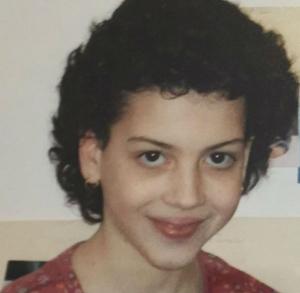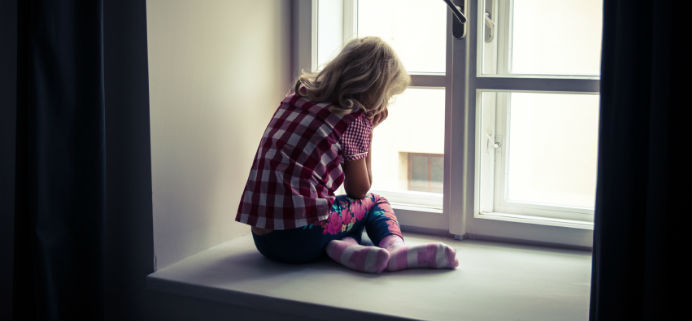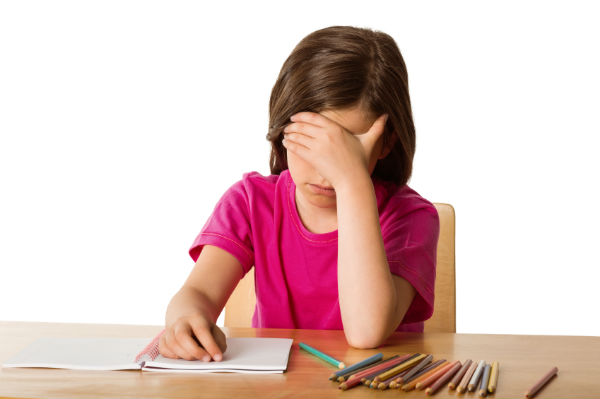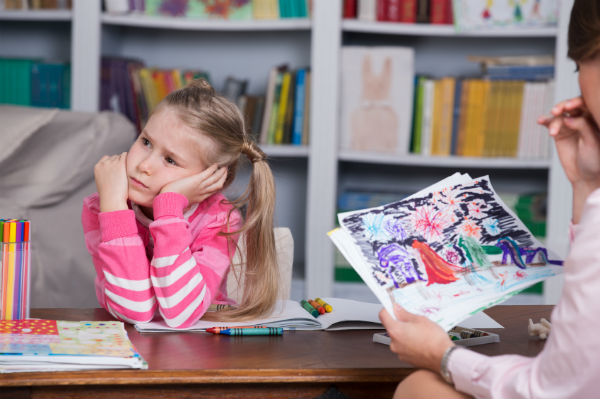Talia Loeb shares her journey of being a child with a mental illness in primary school. New study reveals more pupils are measuring their self-worth through the number of ‘likes’ they get on social media. How can we help children who are going through mental health issues?
The Education and Training Inspectorate (ETI) asked 79 schools about the mental and emotional well-being of their students, and collectively 4000 pupils were said to suffer from them.
Most schools offered mental health services after 6-8 weeks of waiting, which proves to be inadequate. On top of that, the constant involvement by young people on social media causes anxiety and stress to increase. There is a rise of conflict and sense of competition which negatively effects mental health, and adds more pressure to kids.
To get some insight into the minds of children with mental ilnesses and what we can do to help the, Loeb shares her story.
Open the door to a year three classroom in the suburbs of Washington, DC. There are twenty desks filled with children kicking their feet in their chairs and doodling on their notebooks while the teacher painstakingly draws a cursive “k” on the board three times. Then some of the students copy the letter down in messy writing, some just talk to their friends, ignoring the teacher. One student isn’t sitting at her desk or writing in her cursive practice notebook. This child is sitting on the step in the corner alone, reading a thick book and not looking at the other children. That child was me.

From the time I entered school, I had problems learning. Listening to teachers took an extreme effort and sitting in class for multiple hours would bring on near panic attacks. My parents had taken me to different children’s psychology specialists, but none seemed to be able to figure out what was wrong. One doctor said I had ADHD and put me on Ritalin and Zoloft. Not only did those two stimulants not work for me but they had lasting effects on the speed at which I talk and the speed of my thought patterns. Another doctor said I was bipolar, but those medicines didn’t fix my problems either.
I always knew I was a different long before I had a proper diagnosis. In second year, multiplication and division was so scary to me that I would hide and cry silently under my desk. But I was smart and still liked to answer questions put to the class from my little hide out. It seemed to me that there was too much pressure when I sat at my desk but sitting underneath it made me feel safe. Unsurprisingly, my classmates (and maybe even my teachers) thought I was odd, at least I certainly was of that opinion. Perhaps it was some awareness of this which made me eager to befriend my teachers. Looking back, the teachers probably thought I was annoying, talking to them every day after class and during breaks, as if we were friends.
Back then I could not even name my problems let alone talk about them
Let’s go back to the week before the opening scene. That week, my mum came in for one of our semi-regular meetings with my teachers. Ms. T explained to my mum that I had been refusing to do the cursive lessons and would storm off to the corner to sit with my book and she had no idea how to respond. The first time it happened, she insisted I stay in my seat. When I started to cry, I was excused to the guidance counselor’s office. Ms. T tried to talk to me about it at recess one day, but back then I could not even name my problems let alone talk about them with someone I admired as much as a teacher. I ran away from that conversation and went back to play with my friends. My teacher tried that approach for only one more day before allowing me to go either to the back of the room or to the guidance office during cursive time. She tried to be nice with me and to let all my problems go, but I was emotionally unpredictable, flashing between outbursts of anger and bouts of sadness. I did not understand her efforts.
When in reading groups one day, I refused to read the book on baseball and turned my desk around to face the group that was reading a book about dragons and castles. Ms. T, a gentle young woman, lost it and yelled at me in front of the class. ‘Talia, go back to your group!’ She said in a sharp voice. I burst into tears and ran out of the room. She apologized later, saying that she hadn’t mean to yell. But I knew that I had snapped something inside that usually calm woman, and I lived with that the rest of the year. I did my cursive with a tutor who was very patient with me, and I left the classroom less frequently. Some kind of shame welled up inside little eight year old me. Shame for who I was. This was one of the first times that I understood that I did have a problem and that my actions were not right, but I didn’t know how to fix them.
It was not until years later, when I entered High School that I had a full understanding my problems. Anxiety, Depression, Obsessive Compulsive Disorder (OCD), and Mania were the forces that rules my young life before I got on medication. Some of these problems I gave names to as soon as I knew the words for how I felt. Panicking about when to do laundry was called anxiety and lying in bed for hours was called depression. These two diagnoses were confirmed by psychiatrists. OCD came later from a therapist. Mania, I didn’t learn about for a long time. It wasn’t until the summer before university that my parents let me see the results from my latest psychological testing which gave me a word for my anger and extreme over-emotional states.
My medicines stabilized my mood, diminished my anxiety, and perked me up from depression. After that, I just had to re-learn how to act in a socially acceptable way. I do not know how I stayed in school with my turbulent emotions and falling grades. But I did. It wasn’t necessarily that my teachers were mean or that they didn’t know how to teach, but as a small child even a small reprimand felt like they had yelled in my face. I didn’t understand that they weren’t able to know how I felt without me explicitly telling them and even that was explained to me by my therapist.
Year four was a nightmare. I had a language teacher Mrs. M who did not understand me at all, as a student or person. She yelled when I didn’t get an answer right. She yelled when I talked out of turn. She yelled when I got up to use the restroom without asking. She yelled at students who packed their bags five minutes early. Mrs. M liked to yell. Unfortunately, being the socially clumsy child I was, I often did talked out of turn, fidgeted and doodled in class, and raised my hand for almost every question, whether or not I had the answer. I was often the recipient of her stern scolding. I had learned in year three to hold back my tears and let it out when I got home at the end of the day.
It took eight years to shake off that label ( stupid) from my identity
But one day, after a mid-term test, Mrs. M read out the highest and lowest grades in the class. My best friend Lanie had the highest score, I was in the bottom two. Being humiliated like that, I started crying in class and my anxiety kicked in filling me with a need to pace. I had previously had a few meetings with my teacher and my parents about my issues but all that seemed to go away in that moment. I was verbally berated and called names by a teacher who knew about my problems. The most frequent name was merely my own, spoken sharply and with more than a hint of exasperation. ‘Stupid!’ Sighed Mrs. M before turning back to the board. That was the one that stuck with me the most. It took eight years to shake off that label from my identity. I did not enjoy my time in Mrs. M’s class and halfway through the year convinced the school to let me transfer to a nicer teacher, who was patient, quiet, and encouraged her students rather than ripping apart their ideas.
As the next two years went by I was moved down to the right level for me and everything seemed fine. I sat down to my first day of year six next to my good friends, laughing and lighthearted. Ms. D walked in the door with an energy that deserved thunderclaps and lighting. The first thing she told us was that at her old school they used to let her hit students with rulers but that wasn’t allowed here. Anytime I seemed at all emotional or seemed overly anxious, she would hit my desk and tell me to leave. I wasn’t instructed how long to be gone or where to go so I spent much of the first part of the year wandering the hallways and sitting in on classes with my favourite teachers. The time that I was in class, I had the distinct impression she did all she could to ignore me. I wasn’t the only student who was told repeatedly to ‘go for a walk’ but most of the others were trouble makers though the one student who had depression and often broke the dress-code by wearing sweatpants was asked to leave almost as much as I was.
Whether this child is ten and sitting crying on school steps, or thirty and sitting alone in the office lunch room, everyone deserves someone to be there for them.
My private school had no special education program for students who needed extra help and support. Those students who might have been in that class were instead put in the lower level sections for their grade. Many of them, like me, struggled to get the teacher to slow down and to repeat instructions one more time. Teachers turned a blind eye to bullying in their classroom because, in my view, they also felt that I was weird and not deserving of full respect. If I could go back to those teachers now, I would apologize for how I was back then. I wouldn’t blame them for not knowing how to act. Even today, when I am in a room with people I do not know, I go and talk to the quiet people, the people who others might think are weird and not worth conversing with. I reach out and listen. Whether this child is ten and sitting crying on school steps, or thirty and sitting alone in the office lunch room, everyone deserves someone to be there for them. Even for only five minutes, just so they know they are not alone.
Don’t hide things from your kids. If they are having anger issues and don’t know why, they might feel as scared and confused as you do.
I am writing this for all the parents and teachers who have or know a child who doesn’t fit the behavioral norm. The child might not know their actions are wrong or have words to explain why they are crying. My parents tried many techniques with me: behavioral therapy foremost among them. When I was that age, I considered my therapist an adult friend and didn’t feel particularly obliged to tell about my problems. To my parents if you read this, I’m sorry I put you through so much trouble and I hope you are proud of me. And to all the other parents let me give you some advice: don’t hide things from your kids.
Love your child at every stage they are at. They are working though their issues just like you are.
If they are having anger issues and don’t know why, they might feel as scared and confused as you do. Keep them in the loop with medications they have to take. I hated taking pills at first when I didn’t know the reason why. I took them happily when they started to help. Teachers, parents, don’t give up on your child. So many websites today urge against putting your children on prescriptions in lieu of natural remedies. Tea and vitamins can help moderate problems but if your child needs real help, don’t hesitate to try prescription medicines. It might take a few months or a few years to figure out what works but your child will thank you for it down the road. I wish when I was younger that someone could just fix me that everything would just be better; that I would be normal for once. Love your child at every stage they are at. They are working though their issues just like you are.
Do not punish a student for something they can’t control.
If you work together, communicate, and stay positive about treatment and therapy this journey can become much easier and less stressful for both you and your child. To the teachers, if you suspect that one of your students has mental health issues, talk to the parents and talk to the kid. Ask if they are okay and how they feel. Most importantly, do not humiliate, yell, scold, or embarrass in any way a student for something they can’t control. I wish I could say that I meant to be emotional in class, but I barely recognized what I was feeling. Do not punish a student for something they can’t control.
To the teachers, if you suspect that one of your students has mental health issues, talk to the parents and talk to the kid.
I’m all grown up now (or as grown up as a 20-something can be). I’ve pretty much mastered my emotions, or at least learned how to deal with them in a productive way through many years of therapy. Exercising for at least 45 minutes a week, with a large cardio component, and keeping busy with friends or hobbies helps me a lot. I see in the news about new programs for teachers to learn about teaching students with mental health issues. Seeing those stories gives me hope that future students suffering through mental disabilities will have teachers who know how to help and support them. And to those future students and parents of those students, from someone who’s gone through it before you, it might be hard. There will be ups and downs but never give up. You can do it.
Talia Loeb is a university student in the States, she lives in Washington DC and is currently interning at the Healthista.com offices during her semester in London.
Like this article? Sign up to our newsletter to get more articles like this delivered straight to your inbox.


























































